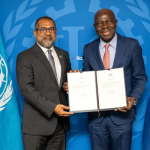
The Maldives is facing a severe dollar crisis that has ignited intense discussions among government officials, business leaders, and citizens. The escalating situation has raised critical questions about how the nation arrived at this point, who bears responsibility, and what measures are necessary to navigate out of this economic quagmire.
An Escalating Crisis Rooted in Overspending
At the heart of the crisis lies a fundamental mismatch between government expenditure and revenue. Successive administrations have consistently spent beyond their means, relying heavily on borrowed funds to fulfill financial obligations. Public debt has ballooned to an alarming MVR 130 billion, with an additional USD 2 billion in repayments looming over the next three years.
Despite generating closer to a billion in annual USD revenue, the government’s inability to balance debt repayments after covering essential import costs has placed the economy under significant strain. Without decisive intervention, the Maldives risks defaulting on its debts, which could precipitate a broader economic collapse.
Tracing the Path of Responsibility
The issue of responsibility is complex, woven through the tenures of multiple administrations. Each government has vowed to curtail spending and boost revenue without introducing new taxes. However, these promises have seldom materialised. Instead, spending has increased, new taxes have been implemented, and the economy has struggled to achieve meaningful growth.
A historical look at government debt reveals a pattern of rapid escalation. At the end of President Maumoon Abdul Gayoom’s tenure, the national debt stood at MVR 10 billion. Under President Mohamed Nasheed, it more than doubled to MVR 24 billion. The trend continued during President Abdulla Yameen’s administration, with debt reaching MVR 60 billion. By the conclusion of President Ibrahim Mohamed Solih’s term, the debt had soared to MVR 124 billion.
In the first year of President Dr Mohamed Muizzu’s administration, government debt is projected to rise by another MVR 9 billion, reaching MVR 133 billion. This trend highlights a persistent cycle of fiscal irresponsibility that transcends individual leadership.
The Impact of the COVID-19 Pandemic
The COVID-19 pandemic had a profound impact on the Maldives’ economy, necessitating substantial government expenditure to address the health crisis and stimulate economic activity. In one pandemic-hit year, government expenditure soared to MVR 28 billion against a revenue of MVR 15 billion. This significant increase in spending was essential to fund healthcare responses, provide economic relief, and support sectors like tourism that were severely affected.
Over President Solih’s five-year term, total revenue amounted to MVR 122 billion—MVR 29 billion more than during President Yameen’s tenure. However, government spending also increased to MVR 178 billion under Solih, compared to MVR 112 billion during Yameen’s term. While much of this expenditure was necessary to mitigate the pandemic’s impact, it also highlights the challenges of balancing fiscal responsibility with urgent economic needs.
The pattern of high expenditure continues, with President Muizzu’s administration expected to spend over MVR 55 billion in its first year & another MVR 56 billion next year. These figures indicate that while extraordinary events like the pandemic have significantly affected the economy, addressing systemic fiscal practices is crucial for long-term sustainability.
Charting a Course Towards Recovery
Addressing the dollar crisis requires a multifaceted approach, beginning with significant reductions in government spending. Eliminating corruption and tackling wasteful expenditures are essential steps in restoring confidence among the public and the business community.
Examples of questionable spending abound. This year alone, MVR 500 million was allocated for government travel and vehicle purchases. Additionally, hundreds of millions of rufiyaa fund embassies abroad whose utility is under scrutiny. Acknowledging these issues, the government has signalled a willingness to implement cost-cutting measures, which will be crucial in stabilising the economy.
The Crucial Role of the Business Community
Tourism businesses, a cornerstone of the Maldivian economy, have faced criticism for not depositing dollars in local banks. To remedy this, financial institutions and regulators must foster an environment that incentivises businesses to retain their earnings within the country. Emulating policies from nations like the United Arab Emirates—where businesses benefit from streamlined services and favourable conditions—could encourage compliance without the need for coercive measures.
Furthermore, the government must focus on recovering unpaid dues from businesses. Entities that fail to comply with financial obligations should face legal consequences, including the seizure of assets to settle outstanding amounts. Only after these avenues have been thoroughly pursued should the government consider utilising dollars from businesses to stabilise the economy, ensuring that such actions are seen as part of a comprehensive strategy rather than a desperate measure.
A Collective Effort for Sustainable Stability
The Maldives’ dollar crisis is a complex issue that demands coordinated efforts from the government, regulatory bodies, and the business sector. By reducing wasteful spending, enforcing accountability, and cultivating a conducive economic environment, the nation can address the root causes of its financial challenges.
Building a resilient and sustainable economy will not be easy, but it is imperative. Through diligent fiscal management and cooperative engagement with the business community, the Maldives can navigate this crisis. The path forward requires not just policy changes but a fundamental shift in how economic stewardship is approached at all levels of governance.
Looking to the Future with Cautious Optimism
While the road to recovery is fraught with challenges, there is room for cautious optimism. The acknowledgement by government officials of the need for fiscal restraint is a step in the right direction. The business community’s potential cooperation, spurred by favourable policies and a commitment to legal enforcement, could significantly contribute to stabilising the economy.
The Maldivian people have a vested interest in the nation’s financial health. Transparent communication from the government about the steps being taken to address the crisis can help rebuild trust. By confronting hard truths and making difficult decisions now, the Maldives can lay the groundwork for a more prosperous and economically stable future.











